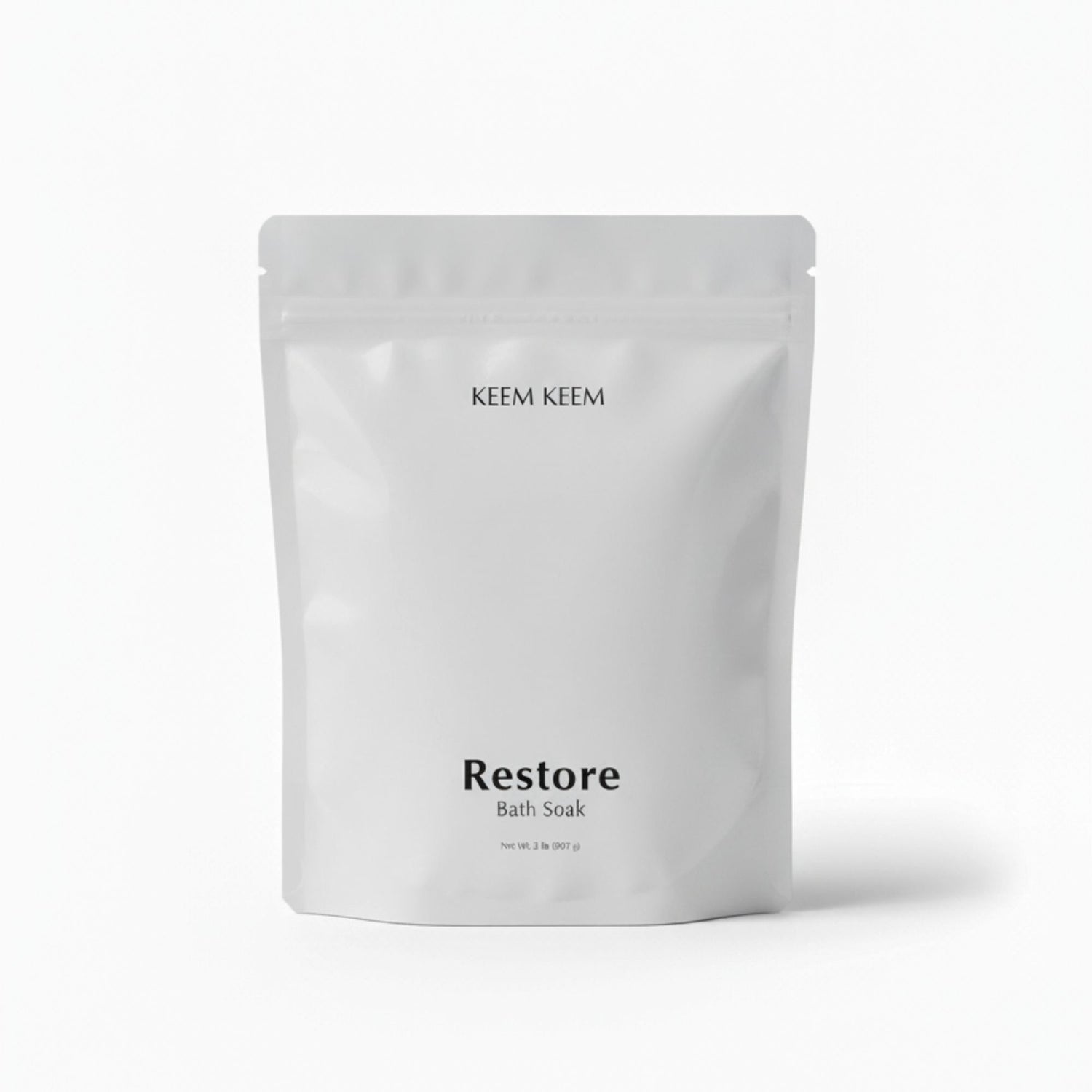Breathwork+Bathing: How a Simple At-Home Practice Supporting Restful Nights
Share
Few practices are as universally calming as a warm bath — or as powerful as intentional breathwork. Together, they create a restorative combination that can help reset the nervous system and restore balance.
Breathwork techniques have been shown to influence stress markers and improve emotional regulation. Bathing with magnesium supports the body’s transition from tension to relaxation. In this post, we’ll explore how these two practices complement each other and share a simple at-home routine you can try tonight.
Explore Restore Bath Soak | Trifecta Bath Soak | Shop Shower Steamers
Why Pair Breathwork with Bathing?
Both practices target the parasympathetic nervous system — the body’s “rest and digest” mode.
-
Breathwork: Slow, intentional breathing helps regulate heart rate, lower blood pressure, and reduce cortisol levels【1】.
-
Bathing: Warm water immersion reduces muscle tension and encourages circulation. Adding magnesium further supports nervous system regulation and recovery【2】.
Together, they create a layered reset: the breath calms the mind, while the bath restores the body.
The Science Behind Breathwork
Breath control directly impacts the vagus nerve, which governs many stress-related responses. Research indicates that paced breathing at a slow rhythm (around 6 breaths per minute) enhances heart rate variability — a marker of resilience and relaxation【3】.
Popular methods include:
-
Box Breathing (4-4-4-4): Inhale for four, hold for four, exhale for four, hold for four.
-
Extended Exhale: Inhale for four, exhale for six or longer to deepen calm.
-
Resonance Breathing: A steady rhythm of ~6 breaths per minute for optimal balance.
The Role of Magnesium in Relaxation
Magnesium supports relaxation through multiple pathways:
-
Regulates neurotransmitters like GABA, which calm neural activity【4】
-
Assists in muscle relaxation by balancing calcium levels in muscle cells【5】
-
Supports stress recovery by lowering cortisol response【6】
Restore Bath Soak, made with pure Zechstein magnesium flakes and Arnica oil, is designed to help:
-
Replenish the body’s magnesium stores
-
Soothe tension after long days
-
Support nervous system balance for restorative rest
A Simple At-Home Breath + Bath Practice
Here’s a 20-minute evening reset you can follow:
-
Run a warm bath. Add 1–2 cups of Restore Bath Soak.
-
Sit comfortably and begin with 3 rounds of box breathing to settle your mind.
-
Shift to extended exhale breathing while soaking (inhale 4, exhale 6).
-
Stay present — soften lighting, silence notifications, and focus on the rhythm of your breath.
-
After 15–20 minutes, rinse lightly and transition to a quiet activity such as journaling, stretching, or sleep preparation.
Enhancing the Practice with Shower Steamers
For those who prefer a shower, Lavender Shower Steamers and Eucalyptus Shower Steamers can create a calming aromatherapy effect to pair with breathwork.
For energy or sinus relief, Menthol Steamers offer an invigorating alternative — best paired with short, energizing breathwork in the morning.
Final Thoughts
Breathwork and bathing are simple, accessible practices that, when paired, create a powerful tool for recovery. By combining mindful breathing with magnesium-rich soaking, you’re giving both your mind and body the space to reset.
Explore our collection to create your own practice:
Citations
-
Zaccaro, A., et al. (2018). How breath-control can change your life: A systematic review. Frontiers in Human Neuroscience.
-
Becker, B. E. (2009). Aquatic therapy: Scientific foundations and clinical rehabilitation applications. PM&R.
-
Lehrer, P. M., & Gevirtz, R. (2014). Heart rate variability biofeedback: How and why does it work? Frontiers in Psychology.
-
Eby, G. A., & Eby, K. L. (2010). Magnesium for treatment-resistant depression: A review and hypothesis. Medical Hypotheses.
-
de Baaij, J. H., et al. (2015). Magnesium in man: Implications for health and disease. Physiological Reviews.
-
Boyle, N. B., et al. (2017). The effects of magnesium supplementation on subjective anxiety and stress. Nutrients.
